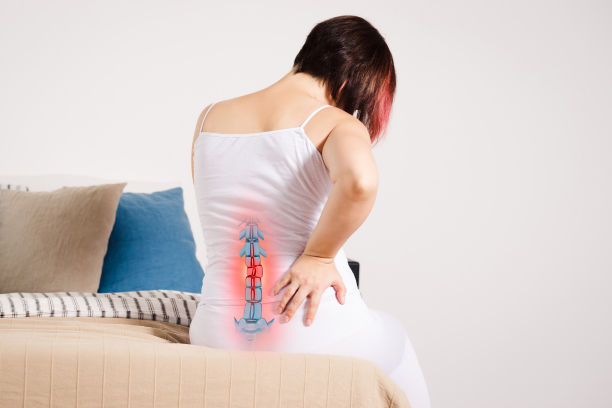Amidst the celebration of motherhood, the profound physical impact on a woman’s body often goes unmentioned. Recognising the critical nutritional needs that arise during pregnancy, childbirth, and the postpartum period is essential, not just for the health of the child, but for the long-term well-being of the mother. One of the most overlooked aspects of this journey is bone health.
Motherhood is a transformative experience, bringing immense joy and responsibility. However, it also introduces significant physiological changes, particularly affecting a woman's bones. In India, where nutritional deficiencies are prevalent, understanding and addressing these changes is crucial for the health of both mother and child.
The Physiological Impact on Bones During Pregnancy and Lactation
Increased Calcium Demand
During pregnancy, especially in the third trimester, the developing fetus requires substantial calcium for skeletal development. Post-delivery, breastfeeding further escalates calcium demands, with approximately 200 mg of calcium secreted into breast milk daily. To meet these increased needs, the mother's body adapts by enhancing intestinal calcium absorption and, if necessary, mobilising calcium from her bones—a process known as bone resorption. This can lead to a temporary decrease in bone mineral density (BMD) during pregnancy and lactation.
Pregnancy and Lactation-Associated Osteoporosis (PLO)
While rare, some women develop PLO, characterised by significant bone loss leading to fractures, often in the spine or hip. A case study from India reported a 24-year-old woman experiencing multiple vertebral fractures postpartum, highlighting the severity of PLO. Risk factors include inadequate calcium intake, vitamin D deficiency, and genetic predisposition.
.png)
The Indian Context: Nutritional Challenges
In India, dietary calcium intake among pregnant and lactating women is alarmingly low. Data from the National Nutrition Monitoring Bureau indicates that average calcium consumption during these critical periods is less than 400 mg/day—far below the recommended 1,200 mg/day for optimal maternal health. This deficiency is exacerbated by limited intake of dairy products, the widespread adoption of vegetarian diets, and a general lack of awareness about micronutrient requirements during pregnancy and lactation.
Compounding this issue, the National Family Health Survey (NFHS-5) reveals that 57% of Indian women aged 15–49 are anaemic, a condition that further strains the body's physiological reserves during pregnancy.
But this vulnerability does not begin in adulthood—it is often rooted in adolescence. Bone health is built like a savings account: the deposits must begin early. Puberty is the most critical window for building peak bone mass, with nearly 90% of adult bone mass accumulated by the age of 18. Girls who consume inadequate calcium during adolescence are unable to achieve optimal skeletal development, particularly in the spine and hips. As a result, they enter adulthood—and eventually pregnancy—with structurally weaker bones and lower reserves to draw from.
When these women become pregnant, their bodies are required to meet the high calcium demands of foetal bone development and breast milk production, often through bone resorption. If their skeletal system is already underdeveloped or compromised from adolescence, the physiological stress of pregnancy and lactation is far more severe.
While bone density loss during these periods is typically temporary and recovers post-weaning, the consequences can be physically painful and disabling. As depicted in the image above, calcium is mobilised from the mother's bones to support the growing child. This results in bone softening and fragility, especially in the vertebrae and hips. Women with low pre-pregnancy bone density frequently report chronic lower back pain, rib pain, and in extreme cases, vertebral fractures.
These musculoskeletal symptoms are often misunderstood or dismissed as general postpartum discomfort, when in reality, they are often the result of cumulative nutritional neglect beginning in adolescence.
Proactive Measures: Safeguarding Maternal Bone Health
Calcium and Vitamin D Supplementation
Recognising the critical need, the Government of India recommends daily supplementation of 1 gram of elemental calcium and 500 IU of vitamin D for pregnant and lactating women, starting from the second trimester and continuing through six months postpartum.
Dietary Enhancements
Incorporating calcium-rich foods into the daily diet is essential. These include:
- Dairy products: milk, dahi, paneer
- Leafy greens: spinach, fenugreek, amaranth
- Nuts and seeds: almonds, sesame seeds
- Legumes: chickpeas, lentils
- Fortified foods: cereals, plant-based milk alternatives
Additionally, ensuring adequate sun exposure helps maintain optimal vitamin D levels, crucial for calcium absorption.
Regular Monitoring and Physical Activity
Healthcare providers should monitor bone health in pregnant and lactating women, especially those with risk factors. Engaging in weight-bearing exercises, as advised by a healthcare professional, can also help maintain bone strength.
Further Reading
For an in-depth understanding, consider reviewing the following studies:
- Pregnancy and Lactation Associated Osteoporosis in a 24-Year-Old Presenting with Multiple Fragility Fractures in the Dorsolumbar Spine: A Case Report and Review of Literature
This case study provides insights into the clinical presentation and management of PLO in young Indian women. - Does Parity and Duration of Lactation Have Any Effect on the Bone Mineral Density in Postmenopausal Women?
This study examines the correlation between multiple pregnancies, extended breastfeeding, and long-term bone health in Indian women. - Calcium: A Nutrient in Pregnancy
This article discusses the role of calcium in pregnancy, its impact on maternal and fetal health, and the importance of supplementation.
Final Thoughts
While the physiological demands of pregnancy and breastfeeding are natural, they can pose risks to maternal bone health if not addressed proactively. In India, where nutritional deficiencies are common, it's imperative to prioritise calcium and vitamin D intake during these critical periods. Through awareness, dietary modifications, supplementation, and regular monitoring, we can ensure healthier outcomes for mothers and their children.










